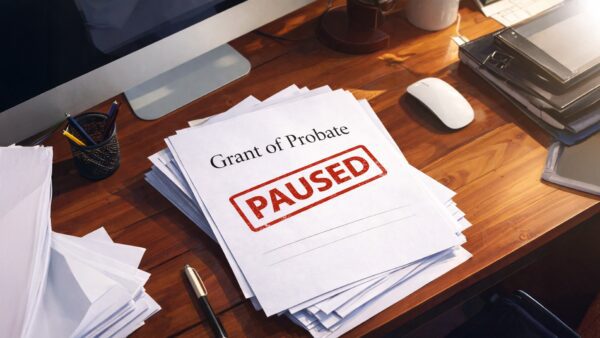In early September 2025, Manchester City and the Premier League reached a binding settlement that ends City’s challenge to the amended Associated Party Transaction (APT) rules. City has formally recognised that the November 2024 APT rules are valid and enforceable going forward, so the current framework remains in place. This follows the decision on 13 February 2025 in connection with the old rules, where an arbitration tribunal (Sir Nigel Teare, Christopher Vajda KC and Lord Dyson) held that the 2021-2024 APT rules were “void and unenforceable.” That finding potentially opens the door to retrospective claims relating to that period.
What are APT Rules and Why Were They Introduced?
APT rules were introduced in 2021 following the takeover of Newcastle United by a Saudi-led consortium, amidst concerns that a sudden influx of capital could confer an unfair advantage. The rules gave the Premier League powers to ensure that any commercial transactions between a club and an “Associated Party” represented Fair Market Value (FMV), to prevent owner-linked deals being used to gain a financial advantage over competitors who did not have access to such funds. In effect, the rules stop club owners from subsidising teams through favourable transactions with linked entities (e.g. sponsorships inflated above market value). The change was introduced at a meeting of all Premier League teams in December 2021, with Newcastle United and Manchester City voted against.
How Manchester City Came Under Scrutiny
Manchester City has been the target of scrutiny under the APT rules. In November 2023, a sponsorship agreement with First Abu Dhabi Bank was deemed not at FMV and in need of adjustment. Similar investigations were also reportedly opened into transactions with Emirates Palace and the Etihad Aviation Group.
Manchester City’s First APT Arbitration Challenge
On 24 January 2024, Manchester City requested arbitration under Section X of the Premier League Rules to set aside those determinations, arguing that Rules E.55-E.79 of the APT rules were unlawful. City contended that the relevant sections of the APT rules violated Sections 2 and 18 of the Competition Act 1998, and that they amounted to an “object restriction” of competition.
The First Award (25 September 2024)
Some of the key findings from the Tribunal on 25 September 2024, included:
1. Shareholder Loans
The APT framework allowed one form of form of subsidy–shareholder loans–to pass outside APT scrutiny, while other forms (such as inflated sponsorships) were caught, even though both were viewed as equally damaging to the Premier League’s Profitability and Sustainability objectives.
2. Object Restriction – February 2024 FMV Amendments
The February 2024 amendments broadened the definition of transactions that could be found above FMV and shifted the burden of proof from the Premier League onto the club. This increased risk of transactions being falsely deemed above market value to the extent that the rules operated as an object restriction.
3. Public Law – Procedural Unfairness
The FMW assessment process lacked transparency: clubs were unable to see or comment on comparable-transaction data used in the test prior to determination.
The Severance Question and the Second Award (13 February 2025)
From 27 January 2025, the Tribunal considered whether the unlawful parts of the 2021-2024 APT rules could be severed so the rest could stand. Applying the blue pencil test from Tillman v Egon Zehnder which permits a tribunal to delete offending wording but not add or rewrite any language), the Tribunal found:
- Textual severance: the shareholder-loan exclusion could be crossed out without adding words; and
- Residual bargain/consideration: the remaining regime would still constitute a valid bargain.
However, the test ultimately failed on the third limb of “overall effect”. Removing the exclusion would fundamentally alter the regime by bringing shareholder loans–a central and established financing tool for clubs–from no APT scrutiny to full scrutiny (including potential FMV re-pricing), materially expanding the rules’ operation. Since the defect could not be cured by targeted deletion, the Tribunal declared the 2021-2024 APT rules void and unenforceable.
What is Affected by the “Void” Finding
The main impact of this ruling is confined to the historic period (2021-2024). The Tribunal did not strike down the current APT rules, which were adopted in November 2024 and remain unaffected by the awards.
The determination that APT rules were void between 2021 and 2024 means clubs scrutinised during this period could potentially seek damages for Associated Party Transactions that did not occur or were reduced in value due to the unlawful regime (e.g. loss of chance claims).
The amended framework remains in force. A key correction is that shareholder loans are now in scope of APT/FMV oversight, subject to transitional carve-outs for certain pre-22 November 2024 loans. It is not the case that all existing shareholder loans remain entirely outside the new rules.
Other Affected Clubs and Transactions
Manchester City was not the only team impacted by APT rules between 2021 and 2024. The awards and public reporting show multiple APTs were notified to the Premier League during that period, with Chelsea Football Club’s transfer of its women’s team to BlueCo noted as an example of intra-group asset transfers attracting review. Other clubs, such as Newcastle United, that made APTs during the relevant period may seek damages on the basis that these deals would have had a higher value but for the now-nullified APT rules–even where the Premier League did not directly require an adjustment.
Settlement Ends the APT Dispute (September 2025)
In early September 2025, Manchester City and the Premier League privately concluded their protracted dispute by reaching a settlement:
- City has formally recognised that the November 2024 APT rules are valid and enforceable going forward, effectively abandoning its legal challenge to those amendments.
- In return, the Premier League secures legal certainty for its updated framework, which subjects all future associated-party deals–including shareholder loans–to FMV oversight.
- While the voiding of the 2021-2024 rules may open the way for retrospective claims, it does not undermine the integrity of the current regime.
City has now acknowledged the enforceability of the Premier League’s current APT framework, however clubs may now focus on potential claims relating to the historic period.
What Next?
It will be interesting to see whether any historic claims do manifest, given that the position going forward now seems settled. The affected Clubs may see little value in further protracted litigation with the League.
Under the current rules, clubs should anticipate continued FMV scrutiny of owner-linked sponsorships and shareholder financing. Preparing evidence of market benchmarks and engaging early with the League on methodology (including access to comparable data) will be essential.









